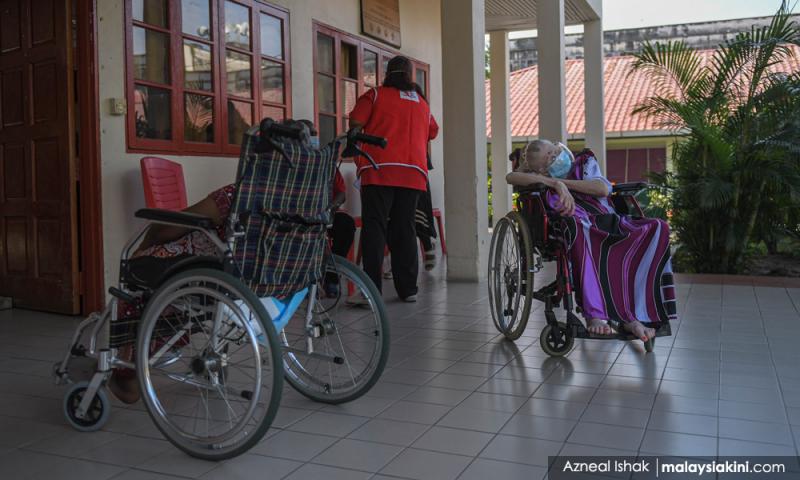LETTER | 'Hidden in shadow' - Dementia most ignored during pandemic
LETTER | If only Vincent could hold his wife’s hand. Maybe she would talk again. Maybe she would look at him and smile as she used to. Maybe she would eat once more instead of wasting away.
Since the Covid-19 pandemic began, Vincent’s wife, Mary - 73 years old and afflicted with Alzheimer’s disease - had declined dramatically. Left alone in the nursing home, she had lost 15kg, could no longer utter the simplest words and stopped responding to the voices of her children.
Within weeks, she had stopped recognising even the man she loved. Vincent knows the isolation was killing his wife, and there was nothing he could do but watch. “She is declining so rapidly,” he said.
In another town, live Pat and her mother who is suffering from Lewy Body dementia. Her mother had a fall during the pandemic and required hospitalisation. One problem that was overlooked by the strict regulations of the hospital was denying her mother a critical intervention - Pat.
Pat’s mother is inefficient in completing daily tasks, struggles to solve new problems, struggles with hallucinations and may make mistakes.
Pat had developed a system and strategy to manage her daily life. A key part of that is Pat being present especially if her mother is ill and requires medical treatment. Pat’s mother was unable to navigate through life without her.
These people are not alone.
Overlooked amid our war against the coronavirus is this reality: People with dementia are dying not just from the virus but from the very strategy of isolation that’s supposed to protect them.
When we rushed to lock down, we forgot about the needs of the most vulnerable, those living with dementia.
We have ignored the devastating impact of social isolation on Malaysians living with dementia. Without family and friends able to visit, people’s symptoms have worsened much more quickly and connections to their loved ones, even those who play a vital caring role, have sadly been lost.
It is not just people with dementia who are affected. It also has a distressing impact on those often overlooked – the army of unpaid carers, struggling to care round the clock for their loved ones, exhausted and ‘burnt out’ with nowhere else to turn.
The coronavirus has laid bare the dire state of our system for all to see so that we cannot dispute the urgent need to re-evaluate the system.
Until then, Malaysians living with dementia will continue to struggle to get the attention, funding and skilled support they need to live well and they will continue to be the hardest hit by tragic circumstances.
People affected by dementia have experienced significant harm from the restrictions to social contact and reductions in services over this period.
At all levels, decision-makers must recognise that informal carers are an integral part of the care system, and the value that people with dementia receive from social contact.
We all know that dementia has been “hidden in the shadows” in Malaysia and is one of the most misunderstood and stigmatised health conditions.
On top of that, our dementia story as we’ve been telling it is so often a fear-laden concept and causes us to be terrified when we hear the word dementia and its statistics. Could it be that the most fearful part is not the numbers, but the story we tell with them?
Every day, we can choose to continue telling the old dementia story, a story that condemns and terrifies, a story that adds burden to an already challenging journey.
Or, we can choose to stop and listen. There’s a new dementia story being told. It’s a story not of despair, shame, loss, and isolation, but a story of joy, strength, growth, and connection.
This will require rethinking, revisioning, and reconstructing diverse living environments and health care approaches if we are to ever achieve a more just, caring, and inclusive society - not only for people living with dementia but for us all.
(All names have been changed)
The views expressed here are those of the author/contributor and do not necessarily represent the views of Malaysiakini.
RM12.50 / month
- Unlimited access to award-winning journalism
- Comment and share your opinions on all our articles
- Gift interesting stories to your friends
- Tax deductable
